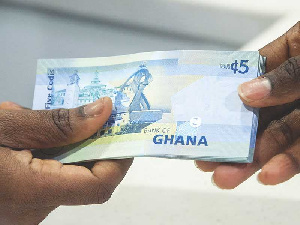10 Ways a Stronger Cedi Can Improve Life in Ghana

In recent years, the Ghanaian cedi has often been in the news for its depreciation against the US dollar. However, the opposite scenario—a stronger cedi—comes with significant benefits for the economy, businesses, and everyday Ghanaians. A stronger currency reflects economic stability and can create long-term growth opportunities.
Here are 10 key reasons why a stronger cedi is important for Ghana:
1. Lower Inflation
A stronger cedi makes imported goods and services cheaper. Since Ghana relies heavily on imports for fuel, food, medicines, and raw materials, a stronger currency helps reduce the cost of these essentials—leading to lower inflation and easing pressure on household budgets.
2. Reduced Cost of Living
When the cedi appreciates, prices of goods, especially those with imported components, tend to stabilize or fall. This directly benefits consumers by improving purchasing power and reducing the cost of living for the average Ghanaian.
3. Cheaper Fuel and Transportation
Ghana imports almost all of its petroleum products in dollars. A stronger cedi lowers the cost of fuel imports, which can translate into reduced transport fares and logistics costs, easing burdens on both households and businesses.
4. Lower External Debt Burden
Much of Ghana’s external debt is denominated in dollars. When the cedi strengthens, the local currency value of this debt falls, easing the pressure on government finances and creating more room for investment in social services like health, education, and infrastructure.
5. Improved Investor Confidence
Currency strength often signals economic stability and sound macroeconomic policies. A strong cedi helps attract foreign direct investment (FDI), as investors feel more confident about the country’s stability, policy environment, and risk profile.
6. Encourages Savings and Investment
With a stronger and more stable currency, citizens and businesses are more likely to keep savings in local banks rather than convert them to foreign currencies. This boosts domestic capital availability for investment and growth.
7. Boosts Policy Credibility
A stable and strengthening cedi improves the credibility of the Bank of Ghana and government economic managers. It shows that fiscal and monetary policies are working, which boosts public trust and reduces speculative pressure on the currency.
8. Stable Business Environment
Businesses benefit from exchange rate stability, especially those that rely on imports or have foreign obligations. A stronger cedi provides predictability for pricing, contracts, and planning—critical for long-term investment and growth.
9. Supports Local Industry Competitiveness
While extreme currency strength can sometimes hurt exports, a moderately strong and stable cedi reduces the cost of imported raw materials and inputs used by local manufacturers. This can improve the competitiveness of Ghanaian-made goods.
10. Reduces Pressure on Interest Rates
A stable or appreciating cedi reduces inflation expectations, allowing the central bank to lower interest rates. Lower rates reduce borrowing costs for businesses and individuals, stimulating investment and consumption.
Final Thoughts
Strengthening the cedi is not just about pride in the national currency—it’s about protecting livelihoods, promoting growth, and ensuring economic resilience. While a balance must be maintained to support exports and local production, a stronger cedi creates a more favorable environment for inclusive development and long-term prosperity.
Source: Thepressradio.com| Solomon Ogyem





